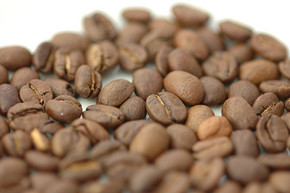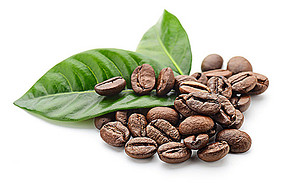Beans from Burundi and Rwanda smell like potatoes?
Pay attention to coffee reviews (Weixin Official Accounts vdailycom ) and find a beautiful cafe to open your own shop
Coffee production is mainly concentrated in Africa, Asia and America, as well as in other states, but the scale and output are slightly smaller. Among them, Africa has seven major production areas. Today, the production areas recorded by Lao Wa are Burundi and neighboring Rwanda. Some people say that coffee beans from both regions have a potato flavor? If you want to know, come and watch it with old Val.

Burundi
Burundi
Population: 8749000
2013 Annual output (60 kg/bag): 167000 bags
Coffee taste:
Burundi's premium coffee will have complex berry flavors and a delicious juicy taste.
Burundi is a small country and therefore does not have a clear geographical area. As long as the geographical environment and altitude are suitable, coffee trees can be planted all over the country. The country is divided into different provinces, and coffee plantations are concentrated around wet treatment plants.
Coffee arrived in Burundi during the Belgian colonial period in the 1920s. Since 1933, farmers have been required to care for at least 50 coffee trees. When Burundi became independent in 1962, coffee production began to go private; in 1972, with the political transition, it went back to the State; and from 1991, it gradually returned to private hands. Coffee cultivation is growing steadily in Burundi, where 90 per cent of the population depends on farming for their livelihoods. Total exports of coffee and tea account for 90 per cent of foreign exchange earnings.
Burundi has a very suitable geographical environment for coffee cultivation, with mountainous territory, suitable altitude and climate. There are no coffee plantations in the country, and Burundi coffee beans are mainly produced by a large number of small farmers. The best coffee in Burundi is washed, mostly bourbon, but there are other varieties.
▼
Rwanda and Burundi have many similarities; apart from similar altitudes and coffee varieties, both are landlocked countries, which can be an obstacle to rapid export of green coffee beans to consumer countries in their best condition. Like Burundi, Rwandan coffee is prone to potato flavor defects.
Rwanda
Rwanda
Population: 10,537,000
2013 Annual output (60 kg/bag): 300000 bags
Coffee taste:
Excellent coffee from Rwanda is often fresh and fruity, reminiscent of red apples and red roses. Berry and floral flavours are also common.
Coffee is grown throughout Rwanda and therefore has no geographical limitations. Coffee roasting can be labeled using the name of the region plus the name of the wet treatment plant or coffee farmer group.
Rwanda is known as the "land of a thousand hills", and it has the latitude and climatic conditions to grow excellent coffee. Coffee was brought to Rwanda by German missionaries in 1904, but it was not until 1917 that Rwanda's coffee production was large enough for export. Rwanda's first coffee tree was planted at Mibirizi Monastery in Cyangugu Province, which became the name of Rwanda's first coffee variety, a variant of bourbon coffee.
By the 1990s, coffee had become Rwanda's most valuable agricultural export, but something happened that almost destroyed the coffee industry. The genocide of 1994, which cost nearly a million lives, and the collapse of coffee prices nationwide had a huge impact on the coffee industry. Coffee production has had a positive impact on Rwanda's overall recovery from genocide. The global focus on Rwanda, coupled with foreign aid, has led to a strong focus on the coffee industry.
Does it really smell like potato?
This particular, and less common, bad coffee smell is found only in coffee from Burundi and Rwanda, where an unknown bacterium invades the coffee rind and produces a toxin. This is harmless, but when the defective beans are roasted and ground, they produce an easily recognizable, strong odor reminiscent of potato peeling.
Important Notice :
前街咖啡 FrontStreet Coffee has moved to new addredd:
FrontStreet Coffee Address: 315,Donghua East Road,GuangZhou
Tel:020 38364473
- Prev

98% of Rwanda's coffee production sells well overseas.
Following Cafe Review (Wechat official account vdailycom) found that Beautiful Caf é opened a small shop of its own. Rwanda Arabica coffee is famous for its unique fruit sweetness and strong grass aroma. In recent years, the government of Rwanda has taken positive measures to vigorously promote coffee production, set up coffee production cooperatives in various places, and give technical guidance and capital to farmers.
- Next

How to bake Colombian coffee beans
Following Cafe Review (official Wechat account vdailycom) found that roasting is the source of coffee flavor when a beautiful cafe opens its own shop. Roasting raw beans is called roasting. Raw beans cannot be drunk without baking. Roasting coffee beans has determined 80% of the taste of coffee. The roasting process is very tricky. If the fire is too strong, the outer ripeness is endogenous, and the fire is too weak, then the coffee is overripe. Roast coffee beans
Related
- Detailed explanation of Jadeite planting Land in Panamanian Jadeite Manor introduction to the grading system of Jadeite competitive bidding, Red bid, Green bid and Rose Summer
- Story of Coffee planting in Brenka region of Costa Rica Stonehenge Manor anaerobic heavy honey treatment of flavor mouth
- What's on the barrel of Blue Mountain Coffee beans?
- Can American coffee also pull flowers? How to use hot American style to pull out a good-looking pattern?
- Can you make a cold extract with coffee beans? What is the right proportion for cold-extracted coffee formula?
- Indonesian PWN Gold Mandrine Coffee Origin Features Flavor How to Chong? Mandolin coffee is American.
- A brief introduction to the flavor characteristics of Brazilian yellow bourbon coffee beans
- What is the effect of different water quality on the flavor of cold-extracted coffee? What kind of water is best for brewing coffee?
- Why do you think of Rose Summer whenever you mention Panamanian coffee?
- Introduction to the characteristics of authentic blue mountain coffee bean producing areas? What is the CIB Coffee Authority in Jamaica?

